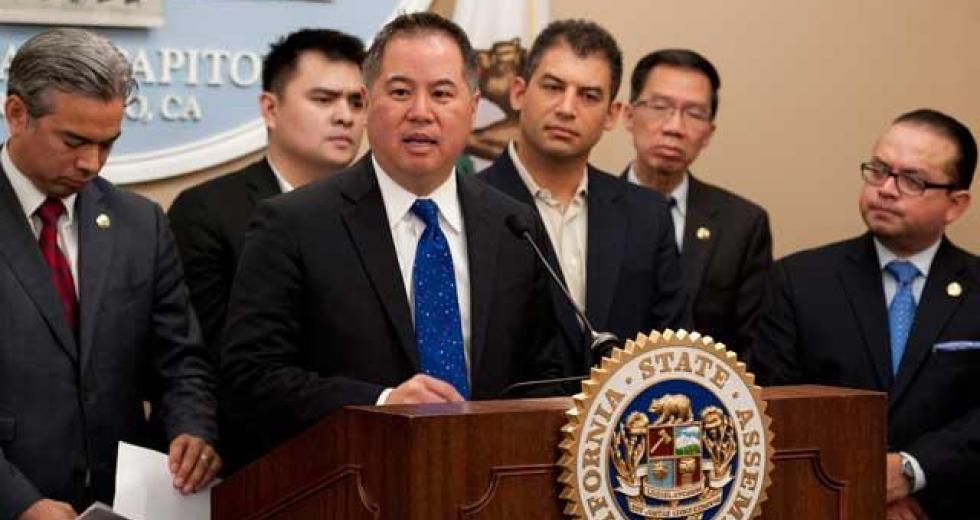Some Californians are breathing a sigh of relief now that House and Senate Republicans have agreed to a partial preservation of state and local income taxes, but a lot of taxpayers will still be unhappy.
The GOP’s tax agreement announced Wednesday, although not finalized, would allow Californians filing federal taxes to deduct up to $10,000 for state and local income taxes and property taxes combined. Previous versions that emerged out of both the House and Senate had sought to repeal the deduction except for a $10,000 cap on property tax deductions.
Such a move would have been particularly punitive for a blue state like California, which has a progressive income tax rate, taking a greater percentage from higher earners. The loss of the state and local income tax deduction would have impacted over 6 million California households—one out of every three. The new version is expected to hit far fewer households.
Related: Key details revealed in Republican tax deal
“It takes it from horrible to slightly less horrible,” said Assemblyman Phil Ting, D-San Francisco, chair of the Assembly Budget Committee. “For people living in California, it’s an absolute catastrophe because they can’t go deduct all their state income taxes and they may not be able to deduct all their property taxes.”
According to the state Finance Department, the average deduction for state and local income taxes alone is nearly $16,000 per return, while state and local property taxes average less than $6,000 per return.
University of California, Davis law professor Darien Shanske said Wednesday’s changes will mean somewhere between 1 to 2 million households will still be impacted since they exceed the deduction cap.
In anticipation of federal changes, California policy analysts have been mulling possible ways to outmaneuver the congressional Republicans and the Trump administration. Shanske, who co-wrote a paper on the unintended consequences of the tax plan, said California could explore some tax maneuvers to give those taxpayers ways to reduce their federal tax burden.
One example would be to offer Californians state income tax credits if they make charitable contributions to public schools and universities, because those would remain deductible under the GOP plan.
Another complicated idea involves shifting an employee’s income tax burden to the employer’s deductible payroll tax in such a way that it would put the same amount of money in the worker’s pocket.
Ting, who laid out budget priorities to expand healthcare to undocumented immigrants and increase tax credits for the poor, said Democrats in the Legislature will want to tinker with taxes—but that it was too soon to speculate.
“We’re going to wait until the final plan lands and make adjustments,” he said.
“To me,” Ting added, “there hasn’t been an appetite to do significant structural tax reform on behalf of a broader community. What we’re looking at is doing reform that will make a difference and put money back in the pockets of working-class and middle-class Californians. And we haven’t figured out how best to do that because we don’t know what Washington is doing yet.”
CALmatters is a nonpartisan, nonprofit media venture explaining California policies and politics.



